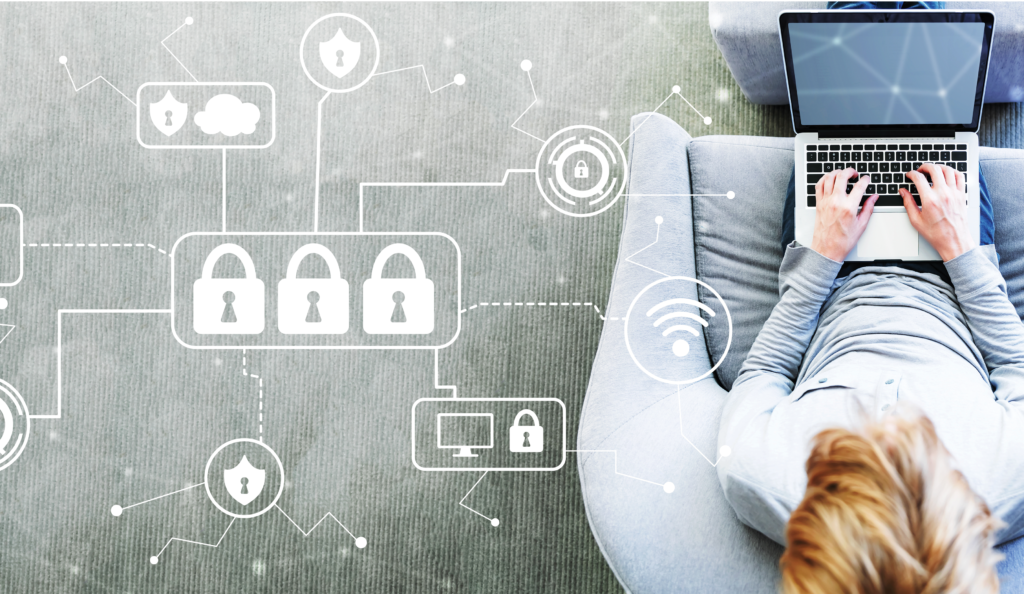The cost of the average data breach has now reached nearly $4 million. This means it’s now bad business to fail to run a tight ship in the realm of cybersecurity.
If you don’t follow some basic cybersecurity tips, you could be flushing profits down the drain for no good reason.
Here are five tips to abide by to keep your workplace secure and safe from hackers.
1. Control Your Passwords
One of the simplest ways to ensure that your systems and communications are secure is to have strong passwords at work. Your employees need to get trained on what makes a good password and to change them often.
If your employees use the same password for multiple things, you need to teach them how dangerous that is. Help encourage better passwords by requiring a certain number of special characters and numbers. That will make it harder for hackers to get into your system.
You also need to put a system in place that requires your employees to change their passwords every couple of months. By locking them out until they create a new password, you can force them to do so. Save old passwords so that they can’t get used again and you’ll soon see them using complex passwords for your system.
Implement two-factor authentication to make sure that your system is extra secure. The second authentication will require your employees to confirm who they are via a mobile device or another tool. You get a whole extra layer of security and make it exponentially harder for a hacker to get in.
2. Secure Your Wi-Fi
If you have a wi-fi network on site, it should be secure. Leaving it open, without any password required for access, leaves you vulnerable to hackers. Once someone logs in, all they need to do is dig for an unsecured connection to your servers to get access to everything.
Having secure wi-fi also keeps you from losing connectivity to any freeloading neighbors. A strong connection is hard to come by and if you’re sharing part of your signal to someone who has hitched a ride, it’ll slow you down.
If your wi-fi isn’t secure, someone could connect to you from your parking lot and start meddling with your system. If you can’t afford to store your server offsite or you have your employees adding information to it from offsite, you could be a sitting duck.
Make sure you’ve got a network monitor installed to ensure you know if anyone is connected who shouldn’t be.
3. Update Early and Often
One of the biggest reasons that people don’t update their computers is that they just don’t know the risks. If you have a workflow that you’ve spent time perfecting, why would you disrupt it so you can have the unknown benefits of some technical update?
The reason is that most of the updates that get pushed out by software companies have to do with security. When you see a security update and you don’t feel like you’re at risk, it’s hard to project that you might be at risk in the future.
By keeping a system that’s constantly updated, you can ensure that your site and your employees will be safe from getting hacked.
It’s a fact of life that employees do personal things on their work computers, from shopping online to posting on social media. Keep their personal information safe, as well as your company’s, by abiding by minimum cybersecurity standards and updating often.
4. Secure Your Workplace
You might think of threats as coming from online, via your wireless signal or from within your servers. But, an often overlooked security problem is the physical security of your offices. If someone can come in and have direct access to your server, they need just a few seconds to cause damage to your system.
Make sure you have secure locks that are only opened by security cards or by a passcode. Be sure that you don’t leave terminated employees with cards that still work. You should be able to clear them from your system at the push of a button.
You should also ensure that you don’t give access to anyone who doesn’t critically need it. Update your security list monthly so that no one who only needed access for a few days is permanently given access to your servers.
5. Consider Outsourcing
Most small businesses can only put a few of these items in place on their own without hiring someone full time to handle it all. However, the catch-22 is that some small businesses can’t always afford to hire someone new on a whim. It takes time to interview, train, and secure new staff.
As much of the latest growth in IT outsourcing now falls within the United States, there are now few ethical issues to outsourcing. If you can afford it, you might be able to get more bang for your buck than hiring someone full-time.
A full-time employee will cost you money in benefits, training, and insurance on top of their salary. An IT professional can cost you some serious money, so it’s important you consider all of the costs when deciding whether or not to outsource.
Cybersecurity Tips Should Be Taken Seriously
While it might not be the first thing that comes to mind when you’re securing your business, as more commerce moves online, this will only be more important.
By following some basic cybersecurity tips, you can make sure that you’re safe and secure and not risking profits with the sloppy management of data.
If you’re still not sure why you should be protecting your data, check out our latest guide to find out.
